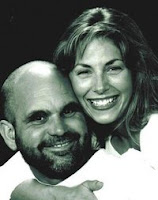 C.S. Lewis analyzes the difference between 'contemplation' and 'enjoyment' in his essay, "Meditation in a Toolshed":
C.S. Lewis analyzes the difference between 'contemplation' and 'enjoyment' in his essay, "Meditation in a Toolshed":I was standing today in the dark toolshed. The sun was shining outside and
through the crack at the top of the door there came a sunbeam. From where I stood that beam of light, with specks of dust floating in it, was the most striking thing in the place. Everything else was almost pitch-black. I was seeing the beam, not seeing things by it.
Then I moved, so that the beam fell on my eyes. Instantly the whole previous picture vanished. I saw no toolshed, and (above all) no beam. Instead I saw, framed in the irregular cranny at the top of the door, green leaves moving on the branches of a tree outside and beyond that, ninety-odd million miles away, the sun. Looking along the beam, and looking at the beam are very different experiences."
Read those two paragraphs one more time, slowly. Philosopher Samuel Alexander called 'looking at the beam' Contemplation (abstract, external, impersonal, uninvolved knowledge) and 'looking along the beam' Enjoyment (participatory, inhabited, personal, committed knowledge). That got me thinking about the different steps I take when studying the Bible. Both Contemplation and Enjoyment are, I think, essential to understanding and living out God's Word. I've often wondered why my appetite for the Bible is increasingly voracious. For many, spending time in the Word is either a chore they would prefer to skip or a Christian discipline they'd like to accomplish quickly so they can get on to the 'more important' things in life. There is no enjoyment involved. I've been considering that HOW we read the Bible may affect our desire for it.
Obviously there is a spiritual element involved. The Holy Spirit indwelling a believer naturally longs for God's Word. But I think the human element also affects the process. Rereading Lewis' essay led me to consider that there are three different levels of reading. Borrowing a little from Alexander, I'd like to identify them as: Fact Finding, Contemplation and Enjoyment.
Fact Finding is probably the most common approach. It involves straight reading. For example, last week I read Ephesians, Chapter 1. After my first read through I was mostly struck by the number of prepositional phrases and the length of Paul's sentences. There was some understanding, of course, but mostly I found it confusing. Many stop at this level and go on to read Chapter 2. In a week's time if you asked them what they read, they couldn't tell you. If you asked them what they learned about God, they couldn't tell you. If you asked them how it changed their lives, they couldn't tell you.
Contemplation is the next level. I reread the chapter several times and began searching for the "specks of dust". Reading it on e-sword made it possible to easily highlight significant phrases and words. I noticed how many times "in Christ" is used. Then I noticed the vast number of things God has done to and for the believer, and highlighted those in a different color, compiling the list onto a Word document. Finally, I translated and made an analytical chart of the chapter, which led me to an ever increasing depth of understanding of what Paul was saying and HOW he was saying it. I realized he was purposely building prepositional phrase upon prepositional phrase to give the readers a sense of the abundance of blessings they possess through spiritual union with Christ Jesus. Paul used multiple phrases so the reader would be "weighed down" by the riches they possess in Christ!
Enjoyment was the final stage. Now that I had a grasp of what Paul was saying and an idea of how he was expressing it, I was ready to "step into the sunbeam" and let it flood over me, allowing it to become personal, committed knowledge. Being able to see the "green leaves" of truth I had previously been blind to, and even more importantly, seeing "the sun", i.e. God Himself, more clearly! Thanks to the previous two levels of reading, I was now able to slowly read through Ephesians, Chapter 1 and be overwhelmed by the work of God through Christ Jesus on my behalf and understand the depth of my riches in Christ. I could bask in the "sunbeam", soaking it up, allowing it to give my life richness and the eternal perspective it needed.
All three levels are vital in Bible study. They build upon each other. Don't be satisfied with Fact Finding, nor stop at Contemplation, nor try to skip ahead to Enjoyment. I encourage you to incorporate all three into your study of Scripture. I think you'll be amazed at the difference it makes!
[My thanks to Michael Ward's book, Planet Narnia, for inspiring my thinking by reprinting Lewis' essay.]
